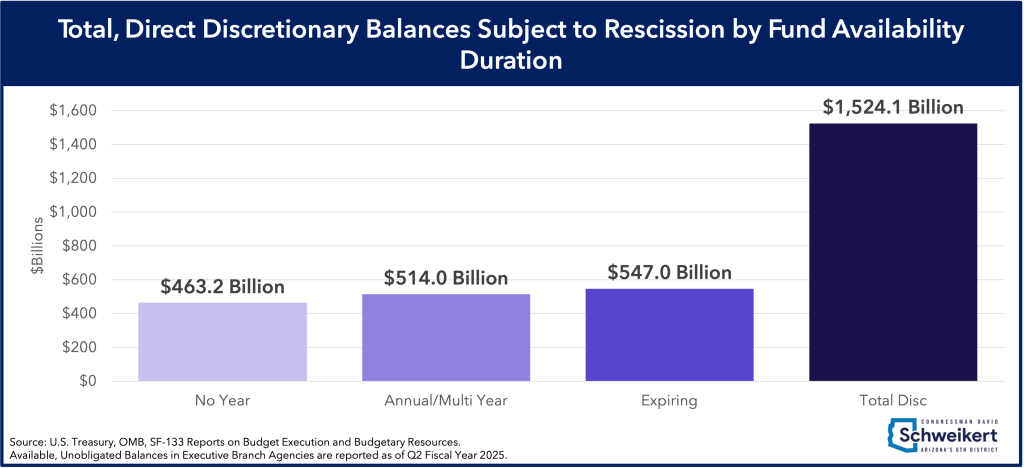WASHINGTON, D.C. – This week, Congressman David Schweikert (R-AZ) reintroduced the Forgotten Funds Act, H.R.3785, legislation to rescind the available unobligated discretionary balances in Executive Branch agencies.
The bill targets a persistent issue across federal agencies: billions in taxpayer dollars are appropriated each year but never obligated, meaning the funds were not committed by contract or other legally binding agreements. According to the Office of Management and Budget (OMB), federal agencies as of April 2025 had $1.42 trillion in available, unobligated discretionary funds, nearly triple the amount on record in FY2011 when Rep. Schweikert first introduced the bill, $703 billion.

“We’re borrowing over $6 billion every day while over $1.4 trillion in borrowed federal funds sits idle. This is indefensible,” said Rep. David Schweikert. “The Forgotten Funds Act is about basic fiscal discipline. Untouched funding should be returned to the Treasury, not sitting in an account we’re paying interest on.”
The bill specifically targets funds: available as of the current period, including those accumulated from previous years; unobligated, which means they have not been committed for a specific purpose; and discretionary, which exclude mandatory trust fund balances among others. Each year, Congress increases program funding, even while agencies fail to spend what they’ve already been given—creating a pattern of excess, inefficiency, and debt accumulation.
“We’re on track to borrow $22 trillion over the next decade,” Rep. David Schweikert continued “Interest payments alone could consume 30% of all U.S. tax receipts within nine years. Every tenth of a percentage point increase in interest rates adds $300 billion in costs. If we don’t rein in reckless fiscal habits now, the bond markets will do it for us.”
The Forgotten Funds Act is part of Rep. Schweikert’s broader efforts to curb government excess, reform federal budgeting, and safeguard America’s fiscal future.
You can read the full bill text HERE.
Back to News
